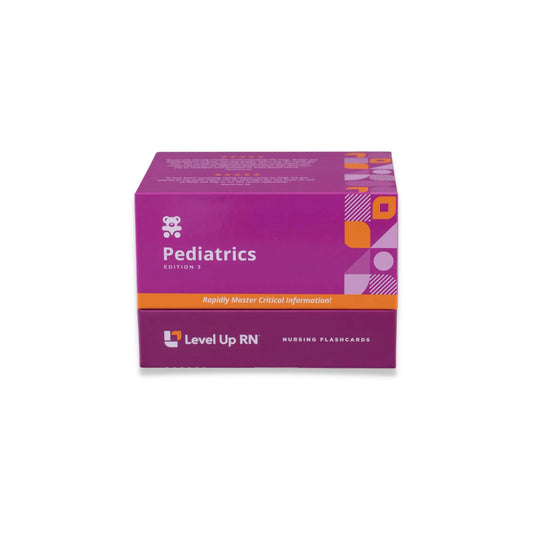Hi, I'm Cathy with Level Up RN. In this video, I will be discussing Meckel's diverticulum. And at the end of the video, I'm going to give you guys a little quiz to test your knowledge of some of the key points I'll be covering. So definitely stay tuned for that. And if you have our Level Up RN pediatric nursing flashcards, go ahead and pull out your flashcard and follow along with me.
Meckel's diverticulum is the most common gastrointestinal congenital defect. So with this defect, we have a diverticulum or pouch in the lower part of the small intestine. So early in pregnancy, there is a duct that provides nutrition to the developing embryo from the yolk sac until the placenta develops. And normally, this duct is absorbed by the fetus around seven weeks of gestation and disappears. So when this duct is not absorbed, then a Meckel's diverticulum forms. This diverticulum is asymptomatic in most individuals. However, the diverticulum may contain gastric or pancreatic cells, and gastric cells secrete acid, which can lead to ulceration and bleeding in the small intestine. Signs and symptoms of this disorder include painless rectal bleeding as well as currant jelly stool, which is stool that is mixed with blood and mucus. Other signs and symptoms include abdominal pain as well as anemia. In most cases, this disorder would be diagnosed with a Meckel scan, which is a procedure where a radioactive substance is injected, which is absorbed by the gastric cells in the diverticulum, which allows for visualization of that diverticulum. Treatment of symptomatic Meckel's diverticulum includes surgical removal of the diverticulum. As the nurse caring for a patient with Meckel's diverticulum, you want to monitor for rectal bleeding as well as signs and symptoms of hypovolemic shock, such as hypotension, tachycardia, and pallor. And then for significant blood loss, the patient may require a blood transfusion.
All right. It's quiz time, and I've got three questions for you.
Question number 1, why does Meckel's diverticulum cause currant jelly stool?
The answer is the stool contains blood and mucus, which gives it a currant jelly-type appearance.
Question number 2, what is the treatment for symptomatic Meckel's diverticulum?
The answer is surgery to remove the diverticulum.
Question number 3, a patient with hypotension, tachycardia, and pallor may be experiencing what complication of Meckel's diverticulum.
The answer is hypovolemic shock.
All right. That's it for this video. I hope it was helpful. Take care and good luck with studying.


